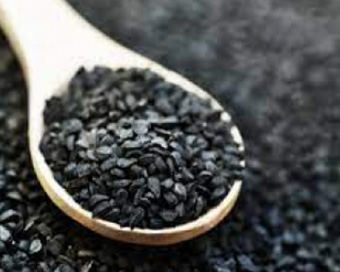Gallery
 PM Modi visit USA
PM Modi visit USA Only the mirror in my washroom and phone gallery see the crazy me : Sara Khan
Only the mirror in my washroom and phone gallery see the crazy me : Sara Khan Karnataka rain fury: Photos of flooded streets, uprooted trees
Karnataka rain fury: Photos of flooded streets, uprooted trees Cannes 2022: Deepika Padukone stuns at the French Riviera in Sabyasachi outfit
Cannes 2022: Deepika Padukone stuns at the French Riviera in Sabyasachi outfit Ranbir Kapoor And Alia Bhatt's Wedding Pics - Sealed With A Kiss
Ranbir Kapoor And Alia Bhatt's Wedding Pics - Sealed With A Kiss Oscars 2022: Every Academy Award Winner
Oscars 2022: Every Academy Award Winner Shane Warne (1969-2022): Australian cricket legend's life in pictures
Shane Warne (1969-2022): Australian cricket legend's life in pictures Photos: What Russia's invasion of Ukraine looks like on the ground
Photos: What Russia's invasion of Ukraine looks like on the ground Lata Mangeshkar (1929-2022): A pictorial tribute to the 'Nightingale of India'
Lata Mangeshkar (1929-2022): A pictorial tribute to the 'Nightingale of India' PM Modi unveils 216-feet tall Statue of Equality in Hyderabad (PHOTOS)
PM Modi unveils 216-feet tall Statue of Equality in Hyderabad (PHOTOS)The Badminton Association of India (BAI) has announced a 14-member-strong India squad for
- Men’s Sr Hockey Nationals to be played in division-based format from April 4
- Mensik denies Djokovic 100th title in Miami final
- KIPG: Son of a vegetable vendor, Bihar’s Jhandu Kumar eyes Worlds, 2028 Paralympics
- Hardik Singh credits hard work and team unity for receiving HI Midfielder of the Year award
- Djokovic, Alcaraz land in same half of Miami draw
Kalonji may help in treatment for Covid-19 infection: Study Last Updated : 04 Aug 2021 04:32:28 AM IST 
Australian researchers have found that seeds of the plant, Nigella sativa, better known as Kalonji, could be utilised in the treatment of Covid-19 infection.
The flowering plant, native to north Africa and western Asia, has been used for centuries as a traditional remedy for multiple medical conditions, including inflammation and infections.A team from the University of Technology in Sydney found an active ingredient of Nigella sativa can prevent the SARS-CoV-2, the virus leading to Covid-19, from causing a lung infection."There is growing evidence from modelling studies that thymoquinone, an active ingredient of Nigella sativa, more commonly known as the fennel flower, can stick to the Covid-19 virus spike protein and stop the virus from causing a lung infection," said lead author Kaneez Fatima Shad, Professor at the varsity."It may also block the 'cytokine' storm that affects seriously ill patients who are hospitalised with Covid-19," Shad added.The study is published in the journal Clinical and Experimental Pharmacology and Physiology.Thymoquinone has been extensively studied in laboratories, including animal studies. These studies have shown that it can moderate the immune system in a good way, by preventing pro-inflammation chemicals such as interleukins from being released.This gives thymoquinone a potential role as a treatment for allergic conditions such as asthma, eczema, arthritis conditions including rheumatoid and osteoarthritis, and even possibly multiple sclerosis.The study details the mechanisms of action of Nigella sativa and thymoquinone and how they are a promising future treatment of Covid-19 infection. There have been many barriers to the development of Nigella sativa as a therapeutic agent in large part due to its poor natural gastrointestinal absorption."Advances in pharmacological development such as nanotechnology have seen the chance to overcome this barrier to enable its use as an effective oral medication. Furthermore, the drug has recently been successfully given to patients as a nasal spray and topical paste," said co-author Dr Wissam Soubra, from the varsity.Nigella sativa has been shown to be helpful in treating high blood pressure, high cholesterol and diabetes mellitus. As an anti-inflammatory treatment, it has also been found to help patients with allergic rhinitis and sinusitis, eczema, osteoarthritis and childhood epilepsy.It has also been proven to be effective in a laboratory environment in killing bacteria such as staphylococcus aureus that can cause a range of mild to severe infections if they enter the skin, and viruses including influenza.IANS Sydney For Latest Updates Please-
Join us on
Follow us on








172.31.16.186







